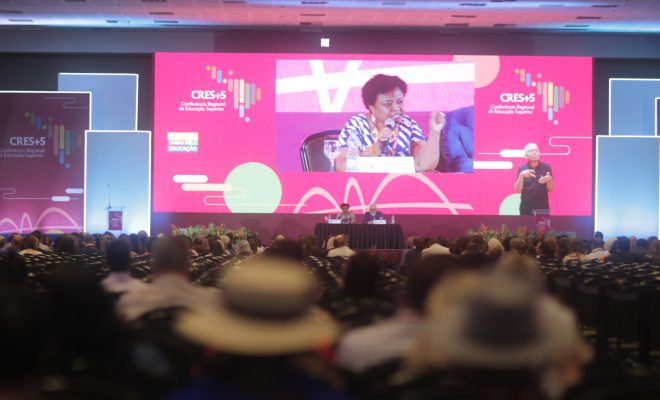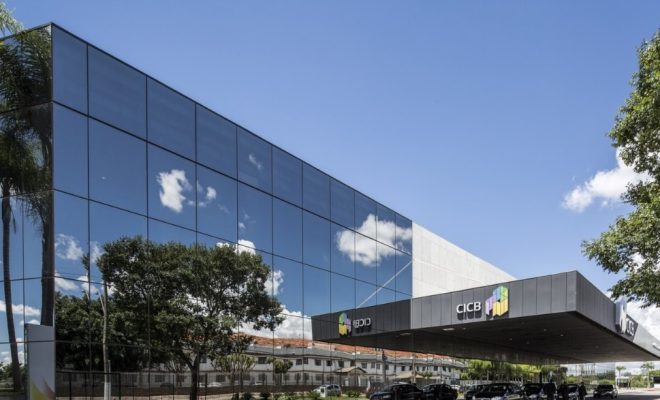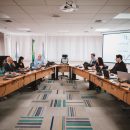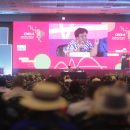Last lecture of CRES+5 addresses university and society
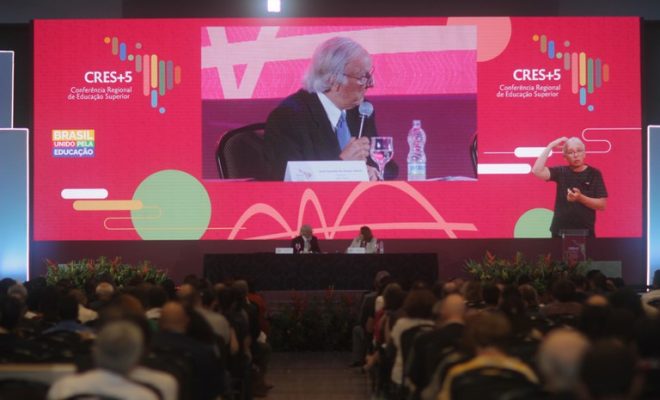
The meeting discussed the importance of decolonization and ensuring freedom and autonomy for higher education institutions towards a new model in Latin America and the Caribbean.
On Friday, March 15th, the final lecture of CRES+5 – the follow-up meeting to the III Regional Conference on Higher Education in Latin America and the Caribbean (CRES) – focused on the role of the university in today’s society. This session concluded the series of lectures on higher education in Latin America and the Caribbean, which had been ongoing since Wednesday, March 13th, at the International Convention Center of Brazil (CICB) in Brasília (Federal District).
In his presentation, Professor José Geraldo de Souza Júnior, former chancellor of the University of Brasilia (UnB), emphasized the need for federal higher education institutions to undergo a process of decolonization. This entails restructuring teaching concepts or distancing themselves from fundamentally Westernized concepts of education. According to him, these prioritize market interests over those of society and often exclude educational concepts from indigenous or Afro-Caribbean leaders, which are more aligned with the needs of the social segments currently excluded or disregarded by the region’s higher education model.
The former chancellor argues that the colonialist process is a historical factor common to the countries of the region, and this influence is evident in the institutional functioning and curricula of their universities. To overcome this situation, it will be necessary to align the concepts of higher education with the reality and knowledge of the region’s peoples. This entails creating a university that embodies the image, references, and wisdom reflecting the reality of our people, with all their difficulties, origins, and cultural diversity. He also emphasizes that the needs of our peoples are vastly different from those of the colonizing peoples, underscoring the need to establish a model of higher education that is not only necessary but also emancipatory.
Souza Júnior also highlights the importance of protecting higher education institutions from market greed. There is a growing trend to commodify education, transforming it into a commercial service regulated by the World Trade Organization (WTO), which aligns with the interests of ultra-liberalism in the market.
Lastly, he argued that preserving academic freedom and university autonomy is essential, as they have come under serious threat in the region, leading the Inter-American Commission on Human Rights to establish principles regarding academic freedom.
CRES+5
The follow-up meeting to CRES 2018 is called CRES+5 and its target audience includes chancellors, directors, academics, workers, students, higher education networks, associations and experts, research centers, trade unions, representatives of governmental and non-governmental organizations and all those interested in higher education on this continent.
Among the preparatory activities for the meeting, different instances of open and participatory debate were organized as part of the event’s methodology-building process. Throughout 2023, face-to-face meetings were held in Córdoba (Argentina), Puebla (Mexico), Asunción (Paraguay) and Havana (Cuba). In addition, preparatory virtual public consultations were held in order to discuss and gather information on the 12 thematic axes of CRES+5, as well as to contribute to the implementation of the Conference.




